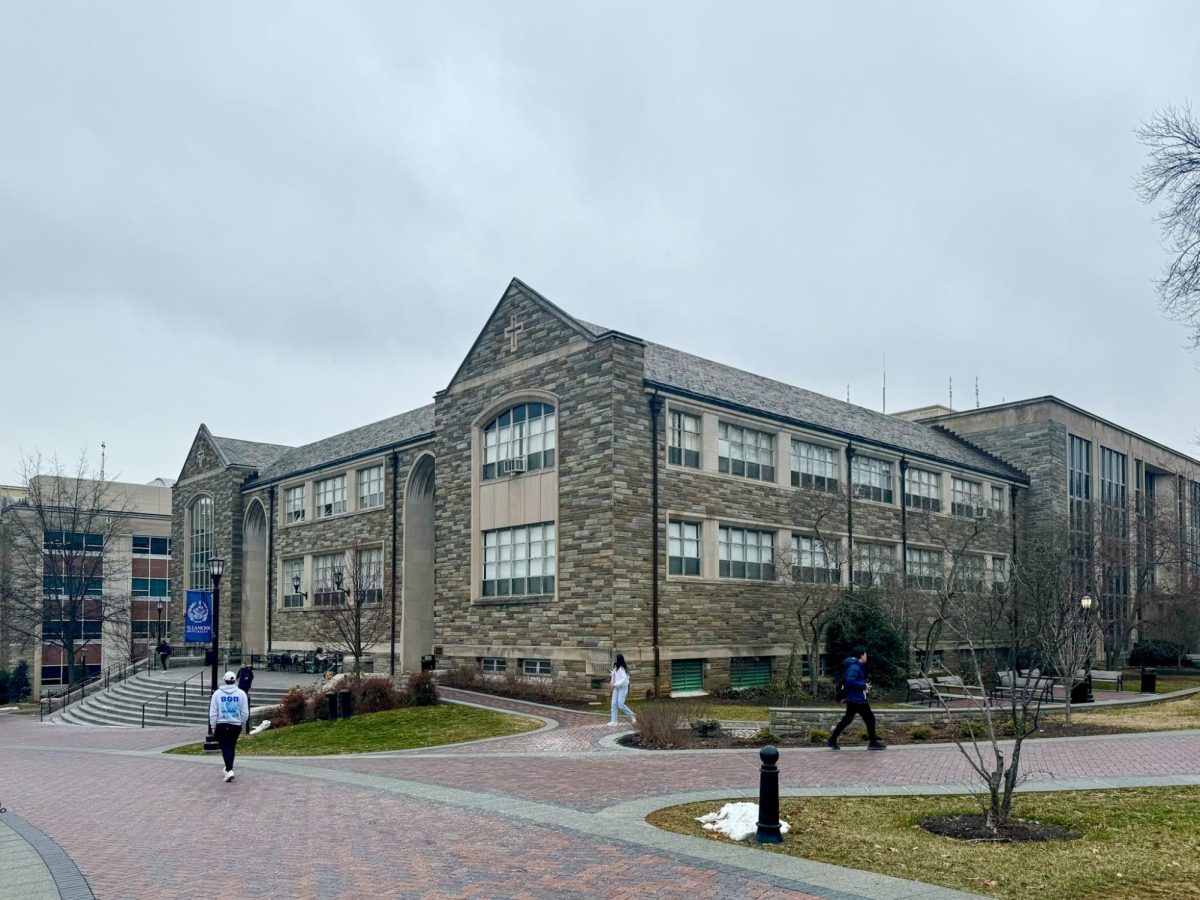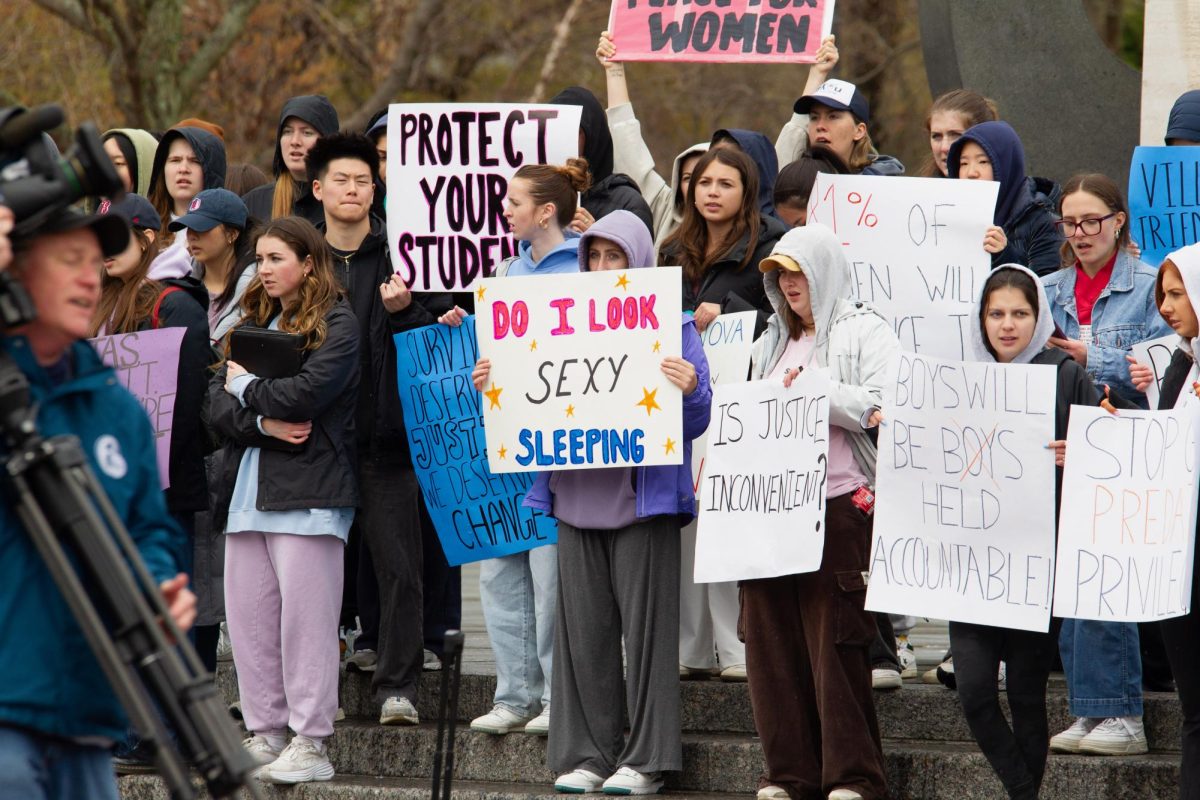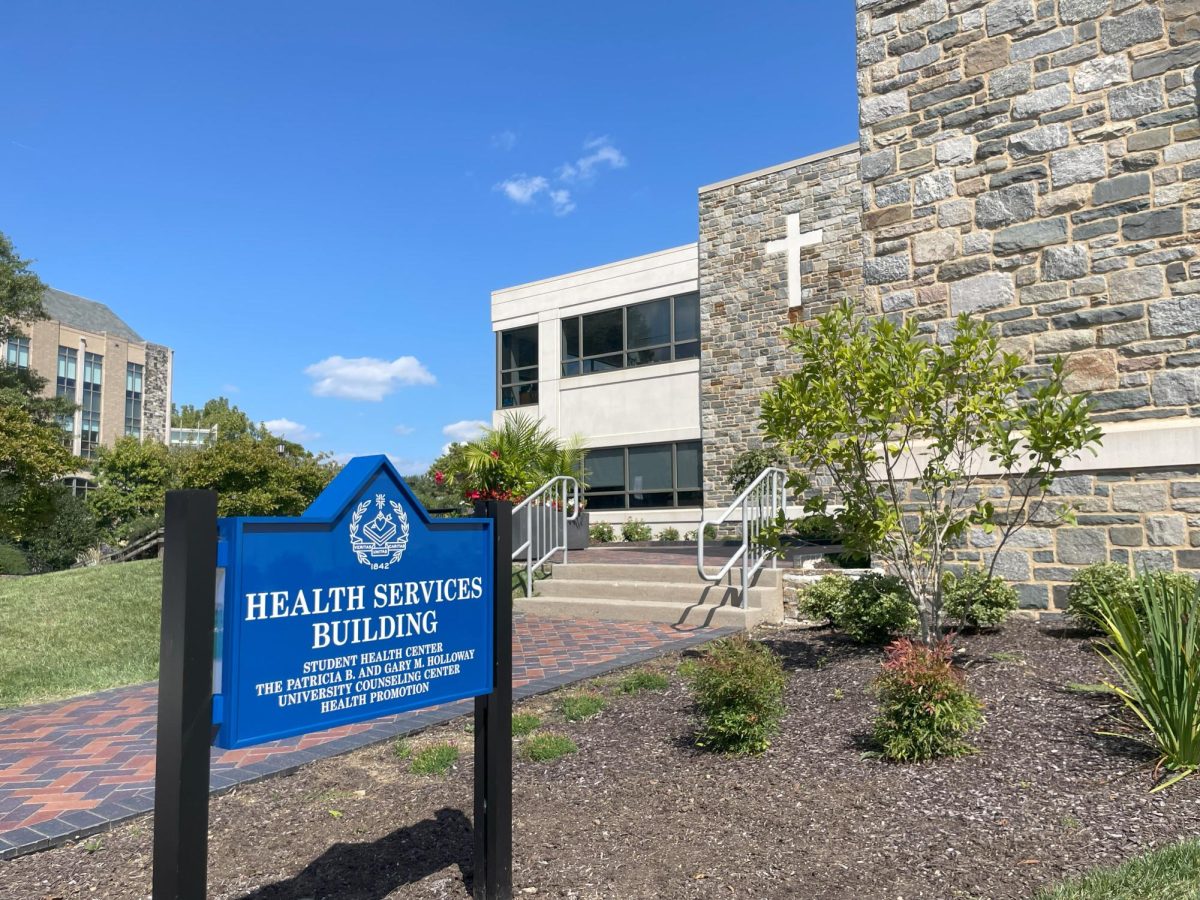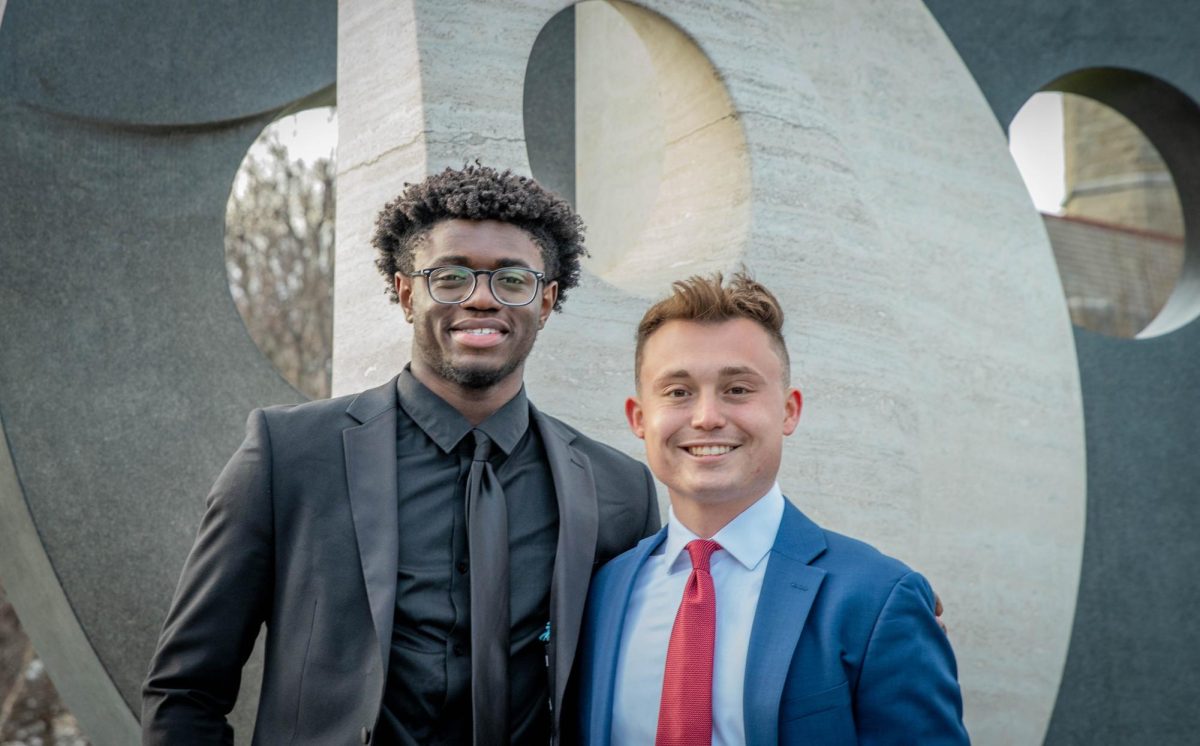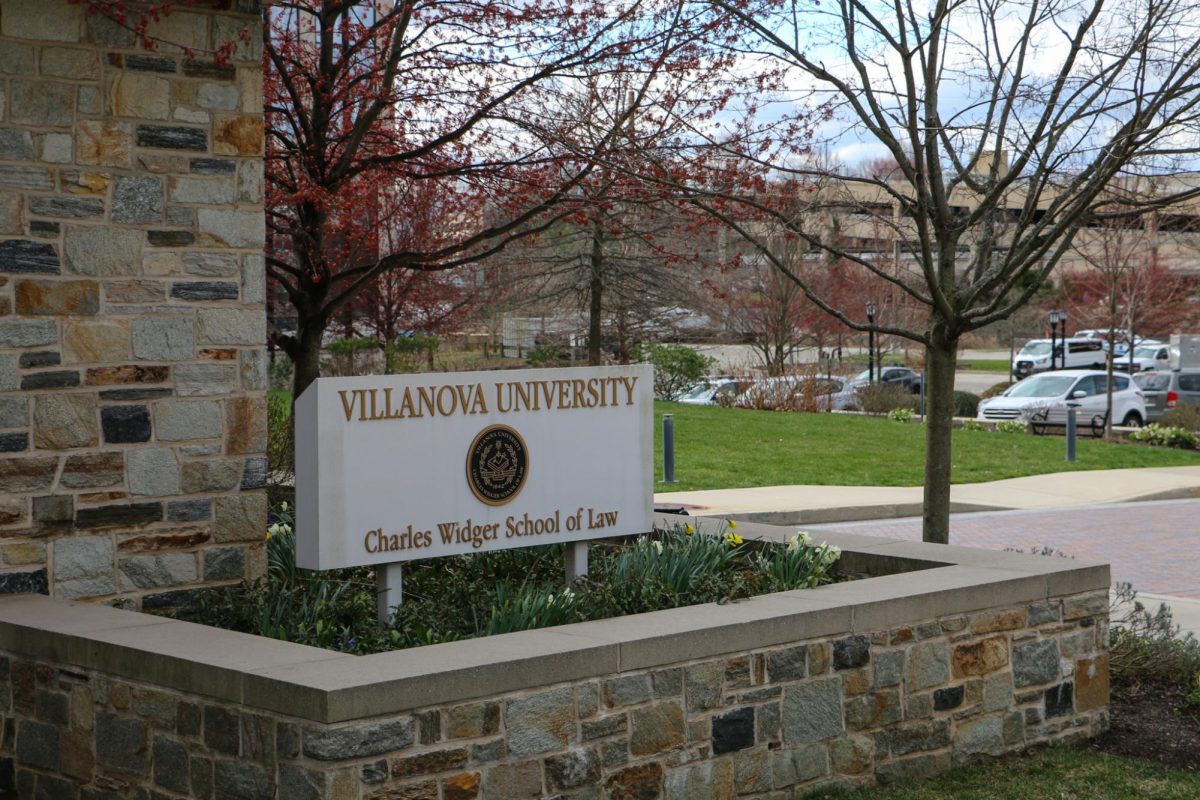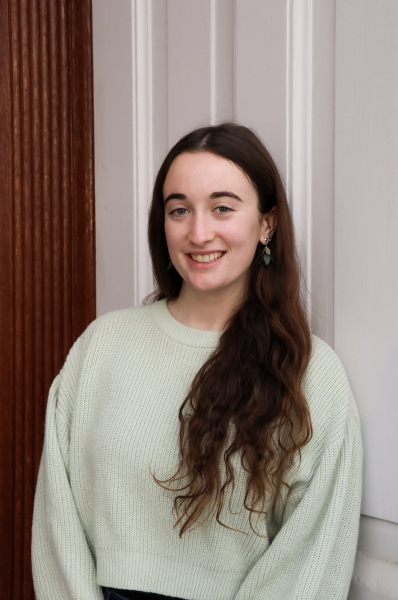Esteemed poet Carolyn Forché inspired students and faculty during her reading on April 3 as the speaker for the annual Peace and Justice Oscar Romero Solidarity Lecture.
Forché is a critically acclaimed poet, memoirist and translator. She currently teaches at Georgetown University as a distinguished professor in the English Department. Forché has written five collections of poems and translated the works of fellow poets Mahmoud Darwish, Claribel Alegria and Robert Desnos. Forché was praised by Nelson Mandela for her international anthology, Against Forgetting, and received the Edita and Ira Morris Hiroshima Foundation for Peace and Culture Award for her advocacy for human rights.
Forché published her first memoir, What You Have Heard Is True, which describes her years in El Salvador before the Salvadoran Civil War. It was nominated for the 2019 National Book Awards.
Katherine Regan Lenehan, the program coordinator for the Peace and Justice Education Department, was excited to invite Forché to speak to the Villanova community.
“The Center for Peace and Justice Education always hosts someone committed to justice for and in solidarity with the poor and marginalized,” Lenehan said. “The lecture is inspired by Oscar Romero, so who better to invite than Forché, a poet and activist who actually met Romero on several occasions. Forché was present at what she believes was his final interview, and she left El Salvador just a week before Monsignor Romero was assassinated while saying Mass.”
Forché talked about her interactions with Monsignor Romero during her exploration of El Salvador’s political unrest in the late 1970s. She explained how a mysterious man appeared at her doorstep asking her to come with him and observe the atrocities happening in his country. He revealed himself to be Leonel Gómez Vides, a coffee-farmer-turned-revolutionary advocating against El Salvador’s US-backed regime. Twenty-seven-year-old Forché was enthralled by his story, but questioned why he would want a poet to record this history.
“I need a poet right now,’ Vides said. ‘Because poets have a weird way of looking at the world,’” Forché recounted.
Poets are regarded highly in different countries. In El Salvador, they often hold political positions. Forché was clear to Vides that poets do not hold the same power in America. He convinced her to come, regardless, and after witnessing the growing violence in El Salvador Forché expressed her concern during her last conversation with Romero.
“And when I told him that I didn’t think I could do this, that I would have no opportunity, that I was only a poet and not a journalist or public figure, he assured me that the time would come for me to speak and that I must prepare myself,” Forché said. “And I could do that best through prayer.”
It took Forché 23 years to begin to write about what she saw in El Salvador. Once she started in 2004, it took her 15 years to complete the memoir.
“I knew in writing this book, I would have to live through this again,” Forché said.
Sophomore Alilsh Wilson was moved by Forché’s words.
“She said she had been too scared to write [the memoir],” Wilson said. “It was inspiring to think that it is never too late to achieve your dreams and that even famous writers sometimes feel afraid to write.”
Lenehan noticed how captivated the audience was during Forché’s lecture.
“I hope the students will remember her anecdotes and drops of wisdom and that they left the event feeling hopeful,” Lenehan said. “Forché read powerful excerpts from her memoir. She has been witness to the horror and human suffering, and yet, she acts through her writing.”
During the Q&A portion of the lecture, Forché addressed a student’s question on how to advocate for social justice as a college student feeling helpless in the current political climate.
“Well, for one thing, you are in a preparatory stage in your consciousness formation,” Forché said. “This is not a neutral situation happening here. You are being formed, you are being educated…what your job is right now, is to question and to inquire skills like languages, and experiences, to read as much as you can…I know that people, North Americans, easily feel helpless. But that is not a good thing to indulge in. Because helplessness is passivity. It is inaction and it is an excuse…never accept the idea that ‘I can’t do anything.’ It’s not true. Use your imagination. Solidarity really means working. And your job now is to get ready. And that’s a job, and that’s important… everything you do, know will affect the rest of your life… it’s small things. It’s accidents. You have to prepare yourself for these small things, these accidents because they are going to happen to you.”
Forché concluded her lecture by thanking the audience and giving advice to students.
“You, I have to say, are in a very difficult time,” Forché said. “And no generation has faced quite what you’re facing. Quite. And there is a lot that you need to do. I’ve never seen anything like what I am looking at now and when I’m looking into the future the same thing happens. So just keep going. Don’t give up.”
Forché’s appearance as the Oscar Romero Solidarity speaker also marks the final author appearance for the English Department’s 26th annual Literary Festival. This collaboration was courtesy of the efforts of Lenehan and Alan Drew, Director of the Villanova Literary Festival.
The lecture was recorded and will be available on the Center for Peace and Justice’s website for any students who missed the event.

